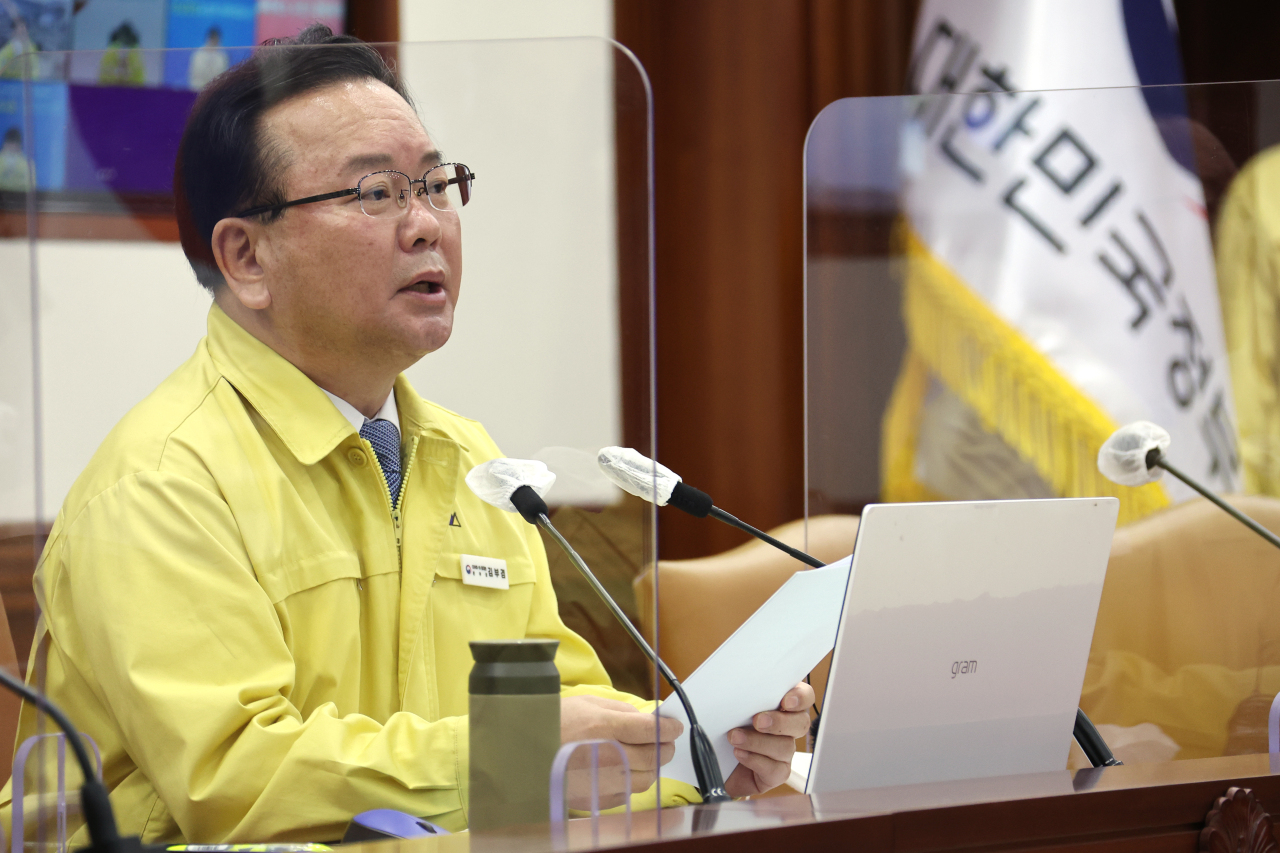[Newsmaker] South Korea drops close contact quarantine requirements altogether
Vaccine passes, post-travel quarantines still in place
By Kim ArinPublished : Feb. 25, 2022 - 15:55

Starting March 1, people who have been in close contact with a COVID-19 patient will no longer need to quarantine regardless of their vaccination status in South Korea. This includes people living in the same household as someone isolating with an active infection.
Currently unvaccinated or partially vaccinated people have to quarantine for seven days following a close contact exposure, while those who are fully vaccinated don’t. A close contact requiring quarantine is defined as living together, talking unmasked or eating for 15 minutes or longer with an infected person.
But soon quarantine will not be required for vaccinated and unvaccinated unlike.
Prime Minister Kim Boo-kyum announced these changes during a government COVID-19 response meeting on Friday morning. Instead of quarantine, precautionary measures such as refraining from nonessential outings or travel, wearing face masks when mingling with others are recommended for 10 days since the point of exposure.
In a news briefing held the same day, senior Korea Disease Control and Prevention Agency official Park Young-joon said as around 170,000 cases occur daily, administrative capacities were overwhelmed. The new policy was about “prioritizing access to resources,” he said, adding, “confirmed patients are considered a priority over close contacts.”
People will not be required to take a polymerase chain reaction test to confirm a COVID-19 diagnosis after a close contact with a patient, either.
Under the current guidelines, PCR tests are available only to people ages 60 and up, close contacts and people who tested positive in a rapid antigen self-test.
The questionnaire for PCR-confirmed patients, which was introduced earlier this month to replace contact tracing, will be simplified as well.
The seven-day quarantine for people arriving from overseas and vaccine pass mandates requiring people to present proof of full vaccination or a negative rapid antigen test result at public places will remain in place, however.
Despite restricted PCR testing, Korea is seeing its largest-yet surge in cases driven by omicron dominance and an overall easing in social distancing restrictions. For the last three days, daily new cases have hovered around 170,000. Ninety-four people have died in the latest 24-hour period, bringing the seven-day average of daily deaths to 71.
Government officials believe the ongoing surge will work out in Korea‘s favor, which so far has had relatively low infection rates.
On two different occasions this week President Moon Jae-in said that after the omicron-led surge peaks, Korea would be able to move on to normal life. Prime Minister Kim also said Thursday that the “transition to an endemic stage is near.”
Health Ministry spokesperson Son Young-rae told reporters Tuesday that the “spread of the omicron virus, which is significantly milder than delta, could be a positive factor in a recovery toward normal life in the long run.” He said that unlike with delta, the rise in infections and hospitalizations “do not warrant the same level of alarm now as before.”
By Kim Arin (arin@heraldcorp.com)



![[AtoZ into Korean mind] Humor in Korea: Navigating the line between what's funny and not](http://res.heraldm.com/phpwas/restmb_idxmake.php?idx=644&simg=/content/image/2024/04/22/20240422050642_0.jpg&u=)
![[Exclusive] Korean military set to ban iPhones over 'security' concerns](http://res.heraldm.com/phpwas/restmb_idxmake.php?idx=644&simg=/content/image/2024/04/23/20240423050599_0.jpg&u=20240423183955)



![[Graphic News] 77% of young Koreans still financially dependent](http://res.heraldm.com/phpwas/restmb_idxmake.php?idx=644&simg=/content/image/2024/04/22/20240422050762_0.gif&u=)
![[Herald Interview] Why Toss invited hackers to penetrate its system](http://res.heraldm.com/phpwas/restmb_idxmake.php?idx=644&simg=/content/image/2024/04/22/20240422050569_0.jpg&u=20240422150649)






![[Exclusive] Korean military to ban iPhones over security issues](http://res.heraldm.com/phpwas/restmb_idxmake.php?idx=652&simg=/content/image/2024/04/23/20240423050599_0.jpg&u=20240423183955)



![[Today’s K-pop] Ateez confirms US tour details](http://res.heraldm.com/phpwas/restmb_idxmake.php?idx=642&simg=/content/image/2024/04/23/20240423050700_0.jpg&u=)